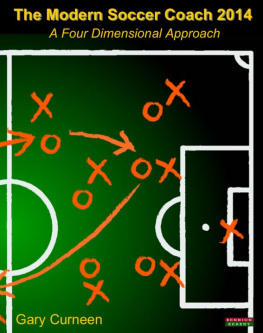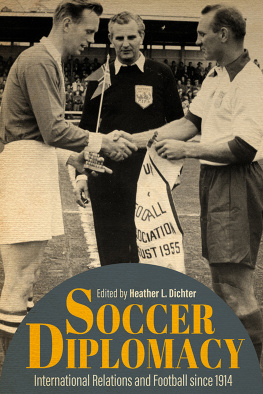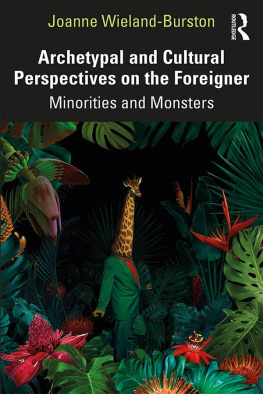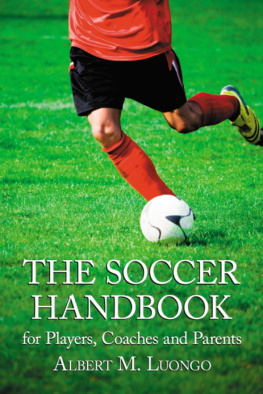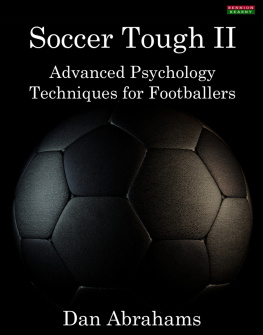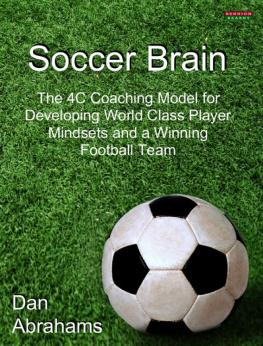Psychological, Archetypal and Phenomenological Perspectives on Soccer
Soccer, or football, attracts vast numbers of passionate fans from all over the world; but clinical psychology is yet to study it in depth. In this book, David Huw Burston, a consultant football psychology and performance coach, uses a phenomenological research method inspired by Amedeo Giorgi to consider what we can learn from the spirit of the game, and how this can be used positively in the consulting room and on the field of play.
By examining detailed qualitative research with professional soccer players of both sexes, Burston identifies and considers nine particular themes, including the family, god, heroes and dreams, and discusses how what we can learn from the game of football and team culture can be applied to Jungian analysis today.
This book bridges the gap between clinical psychology and sport, outlining potential shortfalls in current youth development in sport, as well as discussing how traditional Jungian archetypes can be identified in everyday settings. It will be of key interest to researchers from both the fields of analytical psychology and sports studies.
David Huw Burston (MFT) is a Clinical Psychotherapist in private practice in the USA, and a Consultant Football Psychology and Performance Coach for 11-21 year olds at Tottenham Hotspur Football Club, London, UK.
Research in Analytical Psychology and Jungian Studies Series
Series Advisor: Andrew Samuels, Professor of Analytical Psychology, Essex University, UK.
The Research in Analytical Psychology and Jungian Studies series features scholarly works that are, broadly speaking, of an empirical nature. The series comprises research-focused volumes involving qualitative and quantitative research, historical/archival research, theoretical developments, heuristic research, grounded theory, narrative approaches, collaborative research, practitioner-led research, and self-study. The series also includes focused works by clinical practitioners, and provides new research informed explorations of the work of C. G. Jung that will appeal to researchers, academics, and scholars alike.
Books in this series:
Time and Timelessness
Temporality in the theory of Carl Jung
Angeliki Yiassemides
Apophatic Elements in the Theory and Practice of Psychoanalysis
Pseudo-Dionysius and C.G. Jung
David Henderson
C.G. Jung and Hans Urs von Balthasar
God and evil A critical comparison
Les Oglesby
Bridges to Consciousness
Complexes and complexity
Nancy M. Krieger
The Alchemical Mercurius
Esoteric symbol of Jungs life and works
Mathew Mather
Archetypal Psychotherapy
The clinical legacy of James Hillman
Jason A. Butler
Jungs Theory of Personality
A modern reappraisal
Clare Crellin
Psychological, Archetypal and Phenomenological Perspectives on Soccer
David Huw Burston
Psychological, Archetypal and Phenomenological Perspectives on Soccer
David Huw Burston
First published 2015
by Routledge
27 Church Road, Hove, East Sussex, BN3 2FA
and by Routledge
711 Third Avenue, New York, NY 10017
Routledge is an imprint of the Taylor & Francis Group, an informa business
2015 D. H. Burston
The right of D. H. Burston to be identified as author of this work has been asserted by him in accordance with sections 77 and 78 of the Copyright, Designs and Patents Act 1988.
All rights reserved. No part of this book may be reprinted or reproduced or utilised in any form or by any electronic, mechanical, or other means, now known or hereafter invented, including photocopying and recording, or in any information storage or retrieval system, without permission in writing from the publishers.
Trademark notice: Product or corporate names may be trademarks or registered trademarks, and are used only for identification and explanation without intent to infringe.
British Library Cataloguing in Publication Data
A catalogue record for this book is available from the British Library
Library of Congress Cataloging in Publication Data
Burston, David Huw.
Psychological, archetypal and phenomenological perspectives on soccer / David Huw Burston.
pages cm
1. Soccer--Psychological aspects. 2. Psychology--Research. 3. Phenomenological psychology. I. Title.
GV943.9.P7B87 2014
796.334019--dc23
2014011742
ISBN: 978-1-138-78746-9 (hbk)
ISBN: 978-1-315-76649-2 (ebk)
Typeset in Bembo
by Saxon Graphics Ltd, Derby
Contents
I would like to dedicate this book to my mother Noelle and my father John Burston for giving me the blend of strengths needed to stay the course and win a match from time to time. I thank my wife Alice for her love, stamina and patience, and my dogs Ludo and Oscarlindo for teaching me about the wisdom and spirit of animals. Henry and Libby also deserve a mention for teaching me the wisdom of children. I also want to thank Murray Jones, Demian Brown and especially Bob Ammann for his generous expertise and strength. I would like to thank all the excellent coaching staff at Tottenham Hotspur FC, especially Trevor Webb who is a great spirit in the game and whose foresight and expertise made much of my work possible. I would also like to thank the bright and gifted students who provided the material for the book as well as my illuminating teachers and mentors at Pacifica University including Richard Kelliher and Karey Pohn for their invaluable assistance in creating this document.
Figures
Table
Soccer, or football, as it is known outside of America, attracts vast numbers of passionate fans from all over the world, but clinical psychology has yet to study it in depth. Thus, for this book, a phenomenological research method inspired by Amedeo Giorgi was used to interview players from an American Division One University about what it is like to be an aspiring professional soccer player. This Introduction provides a foundation for this book by presenting some background details of how this research arose and what transpired. The book will record the process of a phenomenological design and methodology and examine the insights it revealed using a depth tradition for examining the psyche.
Eight players were recruited to become coresearchers (four from each gender) on the study. Interviews were conducted using standardized open-ended questions, relating to their initial inspiration to play; dreams, achievements, heroes; playing well and poorly; and the team as family. Nine themes emerged from the responses: (1) Family as the reason they play soccer; (2) God as a source of their gifts; (3) the first as an achievement; (4) dreams of growth and finishing; (5) parents as heroes; (6) the unstoppable body, elevation and descent; (7) dreams of giving back; (8) the team as a supra family and assistors; (9) winning and losing, inner doubt, solutions, and using shadow language. Themes were then amplified using alchemical methodology revealing inner elemental archetypes present in soccer that would have been familiar to the Greeks and before.
Results suggest that the game of soccer strikes deep archetypal chords, stretching back to our early hunter/gatherer roots, with major achievements described as initiatory experiences. When playing well, coresearchers reported heightened states of mind, embodying mythic figures and gods, unlike playing poorly, where thinking too much degraded performance. Coresearchers described a
Next page




